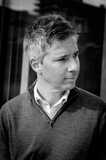big interviews / switzerland
Swiss flair
When it comes to money and diplomacy, Switzerland is an influential global player. But do other aspects of the national brand suit a broader international role? We asked seven of its best about what the future holds.

Simonetta Sommaruga
President, Swiss Confederation
When Simonetta Sommaruga began her term as president of the Swiss Confederation in January 2020, there was no way she could have predicted the challenges that lay ahead. While making political decisions during the pandemic was hard for leaders around the world, Switzerland’s unique system threw up some extra hurdles. Every year the presidency rotates between the seven members of the Federal Council; yet no matter who is president, all government decisions must be made collectively by the members. Sommaruga sat down with monocle at the Federal Palace in Bern to reflect on a tumultuous time and the advantages of the Swiss system.

How would you define the Swiss path during the pandemic?
It is very much linked to our political system and our government with the seven members from four different political parties. This means that when we make big decisions in government, we have a lot of discussions. And that helped us to not go in the direction where we closed everything but also not in the direction where you just leave people by themselves. We call it a Mittelweg.
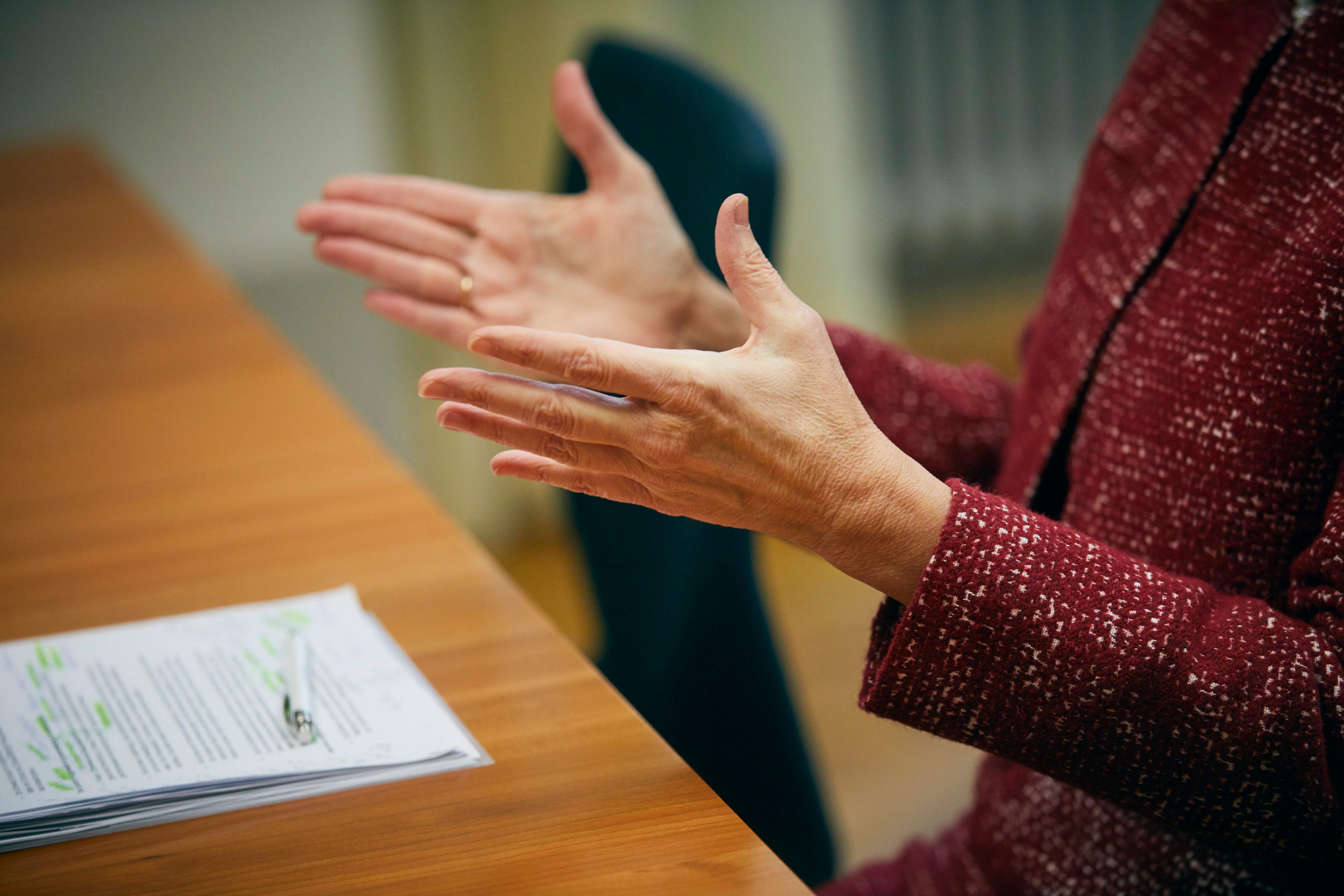
You and your colleagues stood up in front of the cameras every day and there was a precision to it. Did you ever have a dress rehearsal about what you were going to present to the nation?
The seven members within the government have completely different points of view. Because of this we had to debate. I call that a collective intelligence. That also helped afterwards in the communication. We had an approach, we had to clarify things and, when we went out, we could really say what we had decided and why we had decided it.
How much do you compare what you do with what’s happening beyond Switzerland’s borders?
It’s extremely important to be in direct contact, to discuss, to see, to learn from each other. But at the same time, every country has to find its own way. When we took measures, it was important that people could understand why a certain measure was taken. That goes on to be a real challenge because our country does not do this kind of thing by pressure, by fines. In this situation it’s extremely important for people to be sure about schools, the post office and public transport. At the same time our cohesion helps us in the crisis because there is something like a [common] ground we can count on.
You mentioned the word cohesion. Have there been lessons in federalism – both good and bad – in this?
Federalism is really a strength of Switzerland. If you have an idea in one canton, you can do it. You don’t have to wait until everybody asks for that. In the beginning of the pandemic it was, of course, the Federal Council that had to make the decisions. And now we are in this situation, we have to learn where federalism is still very positive because it helps us to make the decisions very specifically and very fast.
How hard has it been for you to maintain diplomatic relationships during this time?
In Switzerland, one of the tasks of the president is also to represent our country abroad but it was almost impossible to go abroad. So I engaged in telephone diplomacy.
Do you prefer to take an old-fashioned phone call rather than a video call?
I am a musician – I like to hear the voice. But I also had a video conference with German chancellor Angela Merkel. We know each other. So we were both at the table and suddenly we almost forgot that it was by video. But usually a phone call gives an intimate atmosphere, one where you are very much concentrating on what you’re saying.
Many people say that proper diplomacy needs to be done face to face. Do you worry about having to continue to do things from a distance?
People have to see each other to really have good discussions. We saw that in our country during the crisis in March; people used newspapers, television and the state broadcaster a lot. You could see that people were so glad to have credible news where they can be sure that there is no manipulation. There are countries that have tried to manipulate the news. This was an extremely important moment, in which people have become aware of what’s going on and of how critical it is when free expression is endangered.
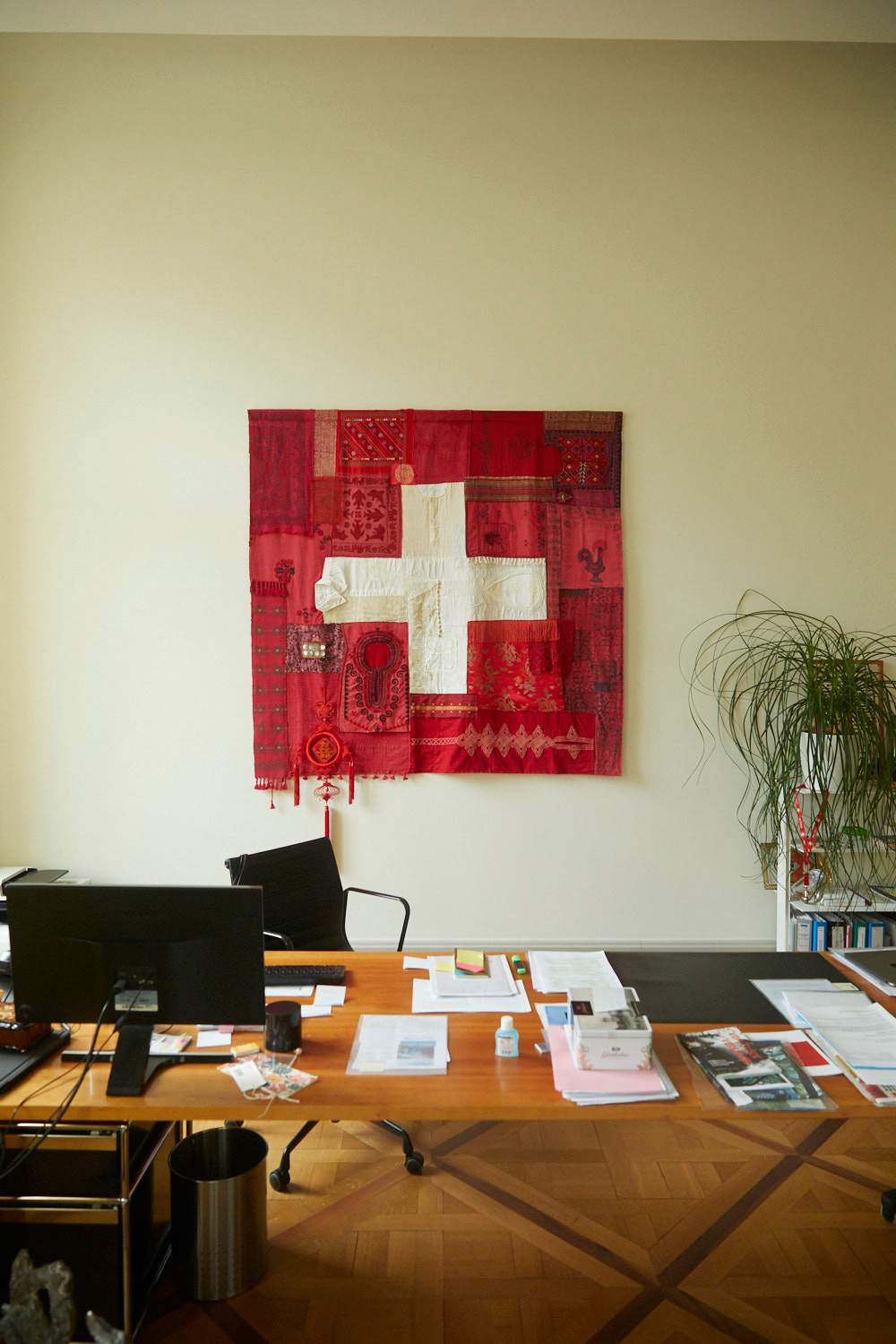
I think that this is a problem we’re seeing at a time of political correctness. When people come from all over the world into European nations, is freedom of expression at least presented as a fundamental?
I would take that in a little bit of a broader scope. I would speak about the integration of people coming to our country. For eight years, I was minister of migration. In these eight years what we did the most was really to invest in integration. And integration is not adaptation but an understanding of how our country works and also giving people the possibility to integrate. I never wanted to have a country that invites everybody to come but then everyone just looks out for themselves. Then you have all these banlieues and parallel societies. But [instead] to say, “OK, we give those who come here the chance to integrate but they also have to do something.” This is something Switzerland is really strong at.
I feel that in the Swiss context people are woven into society and they are not left behind. What do you think has made this work, at a cantonal level but also prescribed from a federal level?
I think one thing is that we do not want to leave anybody behind. It’s not only concerning immigration. We have good schools, we have public pools. We want these public services that are there for everybody. We also have our direct democracy, where people can have a referendum and can vote four times a year. Direct democracy is also a part of society that people can really participate in.
Would you like Switzerland to play a bigger role in the world, maybe on the Security Council or other channels?
Switzerland is a candidate for the UN Security Council for 2023-2024. If you look at it from an internal point of view, it’s a huge step. It means that our country wants to take more responsibility. The way of Switzerland, the way of dialogue, the way of inclusion, the way of searching for solutions, being pragmatic – we can bring that to the Security Council. And we will do it. Well, we have to be elected first.
Sommaruga’s presidential term ends on 31 December 2020. She’ll continue in her role as head of the Federal Department of the Environment, Transport, Energy and Communications.
How Switzerland works
Switzerland’s unique approach to governance and democracy sets it apart. The government, known as the Federal Council, is the nation’s executive power. Composed of seven federal councillors, representing a variety of political parties, the Council is elected by the United Federal Assembly every four years. These seven councillors collectively share the duties of head of state. The councillors rotate and every year one takes on the role of president, becoming “primus inter pares”, or first among equals.
Then there’s the country’s adherence to direct democracy, which means that all its citizens directly take part in decision-making via popular votes, which can be held up to four times a year. (Though, notably, women were not given the vote until 1971.) Only seven citizens are needed to launch a popular initiative on an issue but before a vote is held those seven citizens must collect 100,000 signatures in support of the proposal. The Federal Council, along with parliament, will then recommend which of the proposals should be put to a vote.
Pälvi Pulli
Head of security policy, Department of Defence, Civil Protection and Sport
In 1991, Pälvi Pulli was taking a break from language studies in her native Finland and travelling around Europe. She stopped in Switzerland and took a job as a waitress but she didn’t bank on falling in love and never leaving the country. Fast-forward to now and Pulli – a naturalised Swiss citizen who speaks flawless German as well as Finnish, French, English, Swedish, Italian and Russian – has come a long way from waiting tables.
In 1999 she landed a position at the Department of Defence, Civil Protection and Sport (ddps), working as an analyst on the Partnership for Peace programme with Nato. Today, Ambassador Pulli has risen to become head of security policy for the department. Speaking from her office in Bern’s Parliament Building, with views onto the Aare river, the 49-year-old discusses how the non-aligned neutral country views itself.

Switzerland voted in a referendum to renew its stock of fighter jets by just 9,000 votes. Were you disappointed that it was so close?
I was personally disappointed. But I have to add that it would probably be very tough to get this vote passed in any country. It was also exceptional that we put this question to a vote.
But you’ve done it before…
We had a precedent. We’ve had two votes before on fighter aircraft. So we wanted to make it possible but it wasn’t a legal obligation. We don’t detect any general criticism or scepticism towards the armed forces or security policy in general. But still, we need to get our minds around why there was scepticism about buying aircraft. What does that mean? And we will do this analysis as soon as we have the data.
“Switzerland is certainly used to situations where you need to consider carefully what you say about a conflict”
Are there any credible threats against Switzerland?
In the past few years – with cyber threats, terrorism conflicts and instability, proxy wars – the threshold for using force has dramatically increased in international relations. And all these things can have indirect implications for Switzerland, even if we’re not directly drawn into conflict.
How does a neutral, non-aligned country make alliances?
We don’t talk about alliances to begin with, because the core of neutrality is a legal core. We like to have relationships that are stable and secure around us. We have nothing against Nato – on the contrary – but we have partners. So no alliances but we co-operate very strongly with our partners. And we go to the limits of our legal possibilities to co-operate, without crossing the line.
Is there a risk that, by seeking to be a non-permanent member of the UN Security Council, you will get drawn into potentially uncomfortable situations?
It will not be difficult for Switzerland to weigh its position and voice its concerns if it feels like it. Switzerland is certainly used to situations where you need to consider carefully what you say about a conflict, and where you want to be very vocal if international law is being breached. And that is not something that would change with us being a member of the Security Council.
Peter Maurer
President, International Committee of the Red Cross
Peter Maurer has been president of the Geneva-headquartered International Committee of the Red Cross (icrc) since 2012. A career diplomat, Maurer previously served as secretary of state at the Swiss department of foreign affairs and was Switzerland’s ambassador to the UN. He has overseen a historic budget increase at the icrc and, in 2017, introduced a world-first “humanitarian impact bond” to shake up financial models for helping conflict-riven countries.
Maurer is surprised that the public’s view of humanitarian work is often about the delivery of goods when negotiation and diplomacy are also key. For him, the goal is finding “common objectives and re-establishing minimal trust”, whether helping to oversee a prisoner swap in Yemen after two years of talks or training a new Nigerian tactical force in humanitarian law. He speaks to us from his home in Bern.
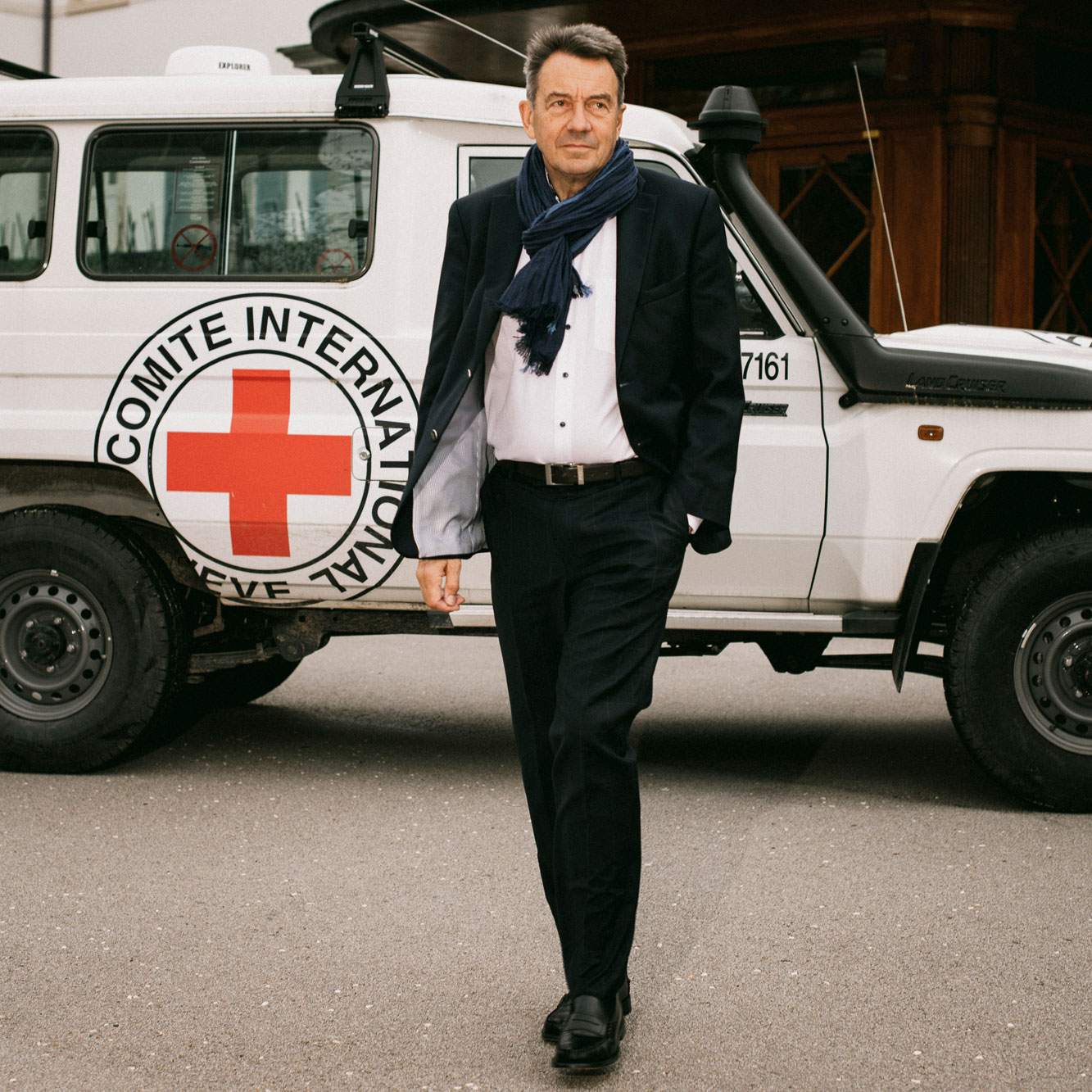
Does fragmentation of conflict make your job more difficult?
Yes, because the essence of the icrc is engaging with weapons bearers in order for them to respect international norms and principles, and allow us access to populations under their control. Chains of command in warfare are increasingly fragmented; you don’t have those big conglomerates of armed forces where you can be sure that when you talk to the general, the soldier will know after a certain time what your decisions were – whether to attack, to withdraw or let somebody pass. We have an increasing number of actors with whom we have to negotiate for access.
“The idea that truth is the first victim of war is not an invention of the Twitter age”
Are disinformation and fake news issues for the ICRC?
The idea that truth is the first victim of war is not an invention of the Twitter age. But technological and social-media developments have given it another dimension. And the immediacy and effect that misinformation can have is something new. Rarely do we see contexts where, after the first shot, we don’t have tweets going out from each belligerent accusing the other of violations that, most of the time, are misinformation. So our decades-old mantra of proximity to people, to victims but also to perpetrators of violence and to armed actors is of critical importance.
Given economic uncertainty over coronavirus, does the way the ICRC is funded need rethinking?
It’s a concern if traditional donors signal that their ability to continue to pay is endangered. The pandemic has accentuated and accelerated a structurally unsound situation that we have seen emerging for some time. The question is whether there is a potential to mobilise capital for impact, which is different from fundraising to spend. So impact philanthropy, impact investment, impact-blended finance – in which market-oriented tools are combined with concessionary tools to inject money into the essentials of stabilising society, delivering humanitarian and social services – is the big question we are dealing with.
Marc Pictet
President, Fondation pour Genève
Marc Pictet – by day a managing partner at Swiss private bank Pictet Group – took over the presidency of the Fondation pour Genève in October. The privately funded non-profit will celebrate its 45th birthday in 2021 and continues to push forward with its remit of welcoming expats working for the plethora of ngos and global organisations based in the city, as well as promoting what it calls the “spirit of Geneva”.
Aiming to make the city an ever-more international hub where bright ideas can happen, the foundation has a range of programmes that include educating high school students about the importance of multilateralism – and its flaws – and a “diplomats’ circle” of talks. Pictet speaks to monocle over lunch in Geneva.

Why does Geneva need an organisation such as Fondation pour Genève?
You’re focused on survival, you’re focused on your clients, you’re focused on developing. But how often do you think about poverty? How often do you think about climate change? Fondation pour Genève is a bridge between international organisations, people from Geneva and international companies. There’s education, there’s thinking and hopefully action around the challenges we’re all facing. We’re working with Bern, the canton and city of Geneva.
Is government in the city, canton and state open to those types of partnerships?
When the foundation was established 45 years ago, that wasn’t really the case. Nor was there the understanding of how crucial it is to have a place where you can meet, exchange ideas and find solutions. Nowadays it’s obvious: you have funding from the state to develop international Geneva and the canton is also very aware. I don’t want to say that it was thanks to the Fondation pour Genève but it was a facilitator.
How difficult is it to bring people together in the current climate?
It’s an accelerator [for change and bringing people together]. Because we all realise that we need to get out of our routine; we need to think outside the box. I’m finding a willingness to interact. You can’t fight something that is as global as what we’re going through in a bilateral way; that’s never going to work.
How do you view Switzerland’s role in the world and how that plays into internationalism?
The advantage of being a small country is that you need to be friendly with everybody. But at the same time, you also need to have your convictions – and we do have our convictions. Next to a neutrality, we also have this direct-democracy system that has worked very well. And I’m convinced that it will work very well in the future and will probably give other countries some ideas on how to function: giving back the power to people.
There must be huge power in the Swiss brand...
We all have bias but ours are certainly less present than those of some other countries because we are such an open economy. I believe we export 60 to 65 per cent of everything we produce. So that dictates the way you want to act and behave towards partners. We don’t have the 350 million consumers to be able to say, “I couldn’t care less about the rest of the world; I have a big country and a big population and purchasing power – I can close my borders to immigration, together with maybe some good ideas, and become more nationalistic.” Switzerland has to remain an open country that has open borders and a free flow of good ideas and people.
Andri Silberschmidt
Federal councillor, Free Democratic Party
Andri Silberschmidt isn’t your average 26-year-old. By the age of 15 he’d decided that school wasn’t for him. Opting instead for Switzerland’s apprenticeship system, combining work with study, he entered the world of finance – a journey that took him to London for a while. Since then he has founded a food business specialising in poké bowls and landed a job at Switzerland’s largest logistics company, Planzer. If that wasn’t enough, in 2019 he became the country’s youngest member of parliament when he was elected to the lower chamber on a centre-right Free Democratic Party (fdp) ticket. For six months he combined representing the canton of Zürich in Bern with a position on his hometown’s city council.
Councillor Silberschmidt sits at a café window table in Zürich’s Paradeplatz, assuring monocle that he’s no nerd. “I was a really chilled teenager,” he says as he dunks a lemon and ginger teabag into a cup. “I was smoking weed, I was smoking cigarettes. But when I started working for a bank I realised that there is also another life other than just hanging around. And I was motivated to see change and to make change happen.”

Silberschmidt decided to enter politics after giving a speech for his former employer to 3,000 people. From there, via a stint as youth-party president, he was added to the fdp list for federal councillor elections in 2019. With the party gaining five seats in the canton of Zürich – and Silberschmidt finishing in fifth place out of 35 – he’d won a seat in Bern. With his neat, telegenic looks, it’s little surprise that he is something of a poster boy for centre-right politics in Switzerland. But, he insists, he’s hardly a silver-spoon cliché.
Silberschmidt decided to find a house-share in Bern for the 60-odd nights a year he would be spending there, moving in with two other opposition politicians: one from the right-wing populist Swiss People’s Party (svp) and another from the Greens. The fact that the arrangement was promoted on social media suggested that Silberschmidt knows a thing or two about self-promotion. “Living together is more than just a PR stunt,” he says. “If you do something for PR, you do it once. But living together is another commitment.”
Hailing from a prosperous, consensus-driven nation means that Silberschmidt’s policies are pragmatic rather than groundbreaking. In fact, he started 2020 trying to get the 100,000 signatures needed to put raising the retirement age to a people’s vote.
He’s convinced that you have to keep moving. “If you want to do cool stuff, don’t do one thing your whole life.” At 26 he could be forgiven for having it almost, but not totally, worked out.
Marcel Salathé
Epidemiologist
Not so long ago epidemiology was almost entirely absent from our everyday lexicon. But as coronavirus continues to dominate global headlines, we increasingly hang on the words of the scientists studying it. From the gravelly New York vowels of Anthony Fauci to England’s chief medical officer Chris Witty, epidemiologists examining the pattern and spread of infectious diseases have become stars.
Sat at a table in the vast interior courtyard at Campus Biotech in Geneva, Marcel Salathé looks a little bemused, if not entirely surprised, at the attention his work as a digital epidemiologist is receiving. Normally splitting his time between lab work at the campus and online teaching at the Extension School of Lausanne’s École Polytechnique Fédérale (epfl), his life has transformed since he became a member of Switzerland’s coronavirus task force. The pandemic has “completely taken over” his work and nowadays he has to screen his calls.
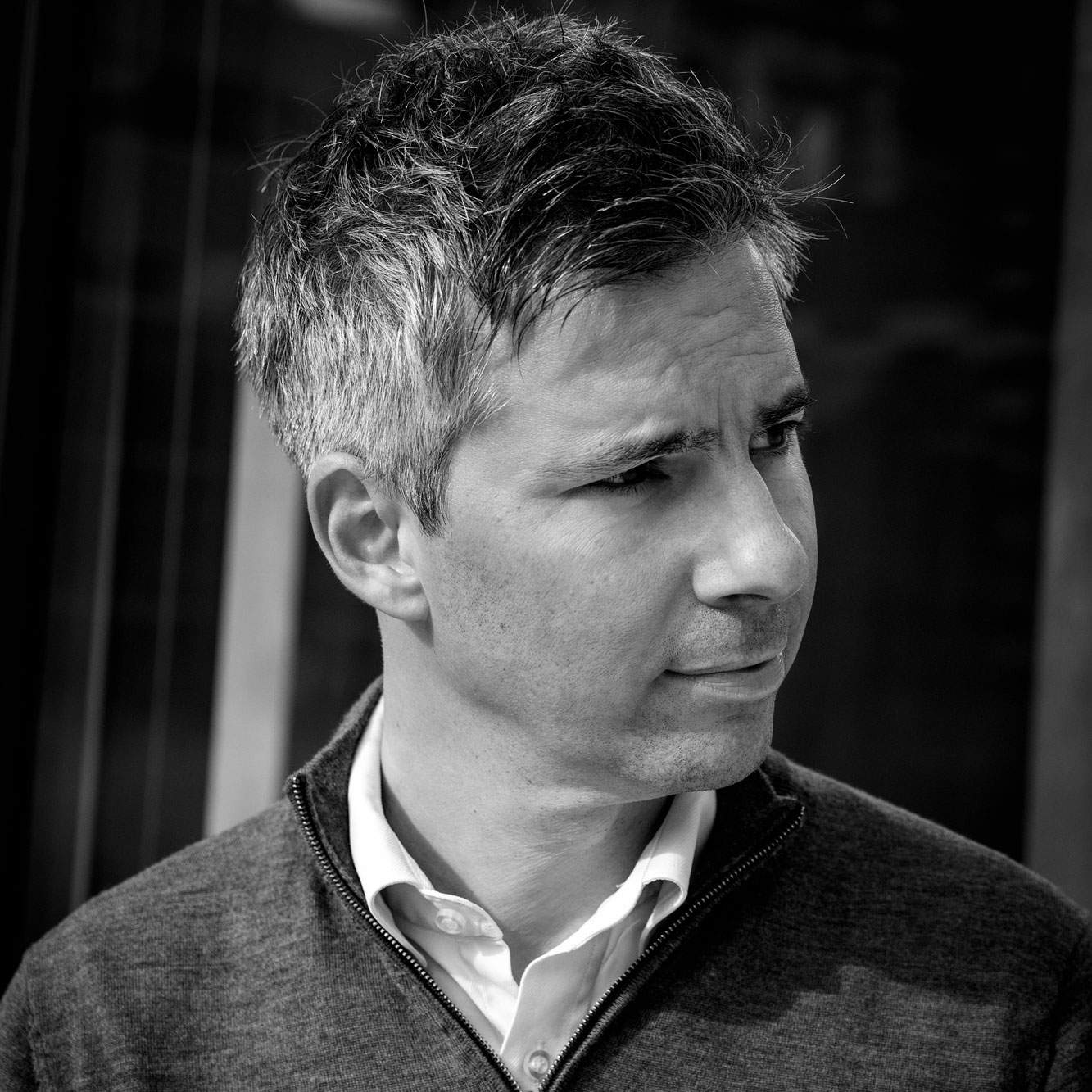
So what’s it like being part of the news cycle? “You have to learn quickly,” says the 45-year-old, who has the thick skin that his new role requires and has proved unflappable despite the rapidly changing panorama in his country. With spiking infection rates, he nevertheless won’t be drawn into what went wrong (“That’s a minefield because it tries to figure out who’s to blame”) and still believes that the Swiss approach is correct in its emphasis on the individual. “You appeal to individual responsibility,” he says. “But there should be clear rules in a crisis.”
Nor does he find references to a “second wave” helpful, as to him that suggests being enveloped and defeated by nature. While he recognises that the situation by the end of October had become “out of control” in Switzerland, he believes that “fires” is a better analogy because, with collective common sense, they can be extinguished.
Salathé has confronted everything from legal frameworks to issues of privacy when helping to develop the protocol for a tracing app. And then there’s the fact that he can recommend action but, ultimately, governments make decisions, with the Swiss approach proving different from that of its neighbours. So communication is key. “We just have to be transparent about what our goal is,” he says.Salathé confesses to an “incurable” optimism but he never allows it to interfere with the facts. “Science should be as non-sentimental as possible,” he says. He believes that advances in engineering and biotech will lead to fewer pandemics in the future not more. And with 11 vaccines in the final stage of testing, alongside promising treatments, he also doesn’t think coronavirus will dominate our lives in the long term. “The most likely outcome is that in the coming months we will manage to bring the health burden that the virus poses down to a level that is more comparable to flu.”
Grégoire Junod
Mayor, Lausanne
Lausanne’s Villa Mon Repos, the mansion the Swiss city uses for functions, is putting on quite the show. It’s not so much the lavish interiors, featuring 18th-century tapestries, crystal chandeliers and gilded mirrors, but what’s happening outside its windows. There the leaves of the nearby trees are at the height of their autumnal splendour, showing off with a shimmering shade of yellow.
“It’s a permanent breath of fresh air living in Lausanne,” says Grégoire Junod, the city’s socialist mayor. The 45-year-old, dressed in a suit but no tie, points to the lake bordering the city. Then there are the vineyards stacked on the hillsides, fittingly producing a Cuvée du Syndic (Mayor’s Vintage).
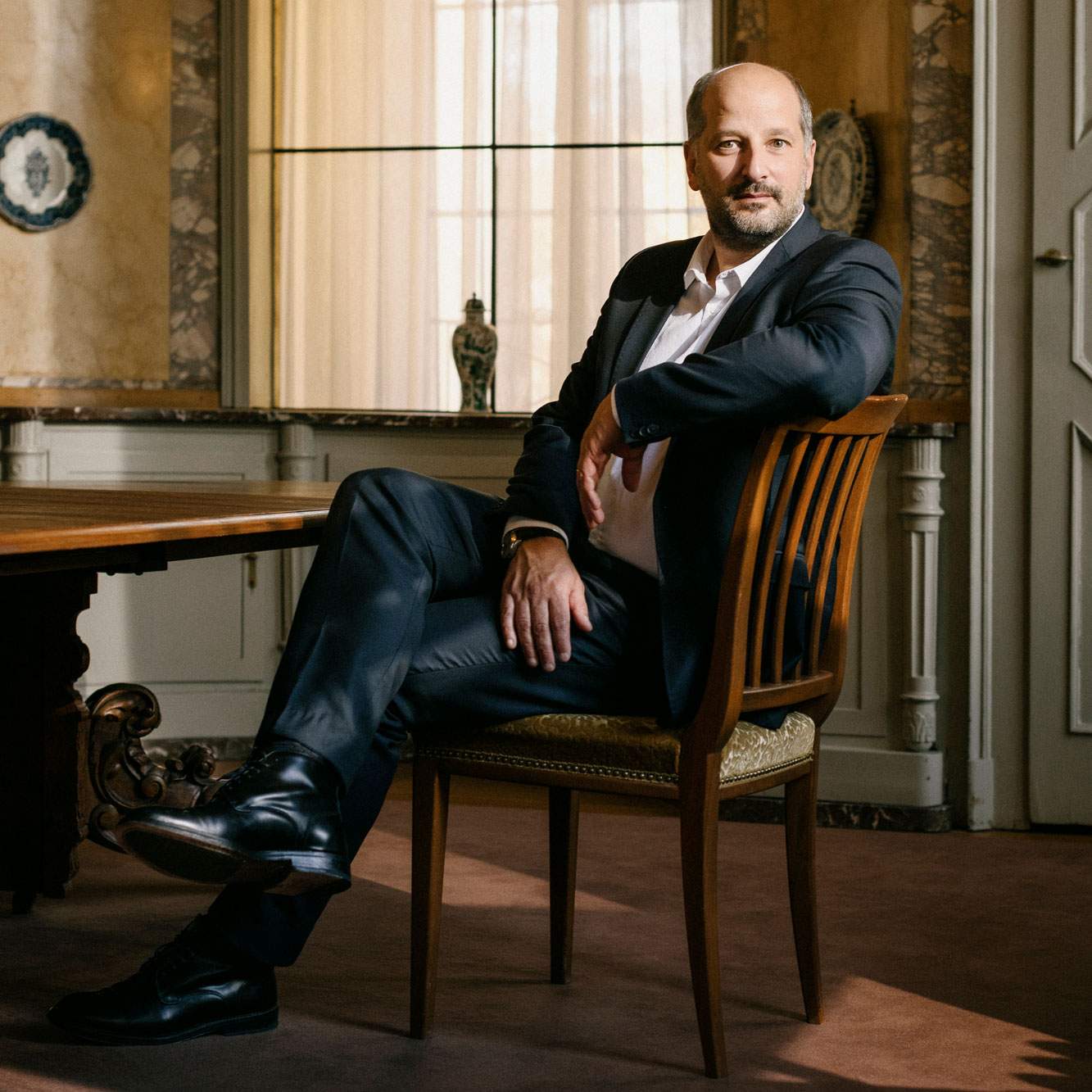
Lausanne, a city that has been dominated by the left since the 1990s, likes to punch above its weight. With some 145,000 inhabitants, it’s one of the globe’s smallest metropolises with a metro. But it “wouldn’t be on the world map”, according to the mayor, without its Olympic history. Lausanne is home to the International Olympic Committee and Junod says that “the best moment of his career” was in January when 640,000 people were in town to see it host the World Youth Winter Olympics; hotel occupancy in the city had never been so high.
Lausanne faces similar challenges to other places with development aspirations, says Junod. “What’s at stake for a city like Lausanne – or in fact for all growing cities in rich regions – is both developing and being attractive, while remaining welcoming for its own inhabitants,” he says. Although he acknowledges that housing is a problem, he also says that one out of every two subsidised houses for the canton is in Lausanne, despite having only 15 per cent of the population. Then there’s the Métamorphose mega-project that will create 3,500 new homes, alongside new sporting infrastructure, between now and 2030.
If January’s games were a high-point for the mayor, he also recognises that there has been a reality check with the coronavirus pandemic. The 2021 budget has a deficit of chf74.6m (€69.8m) as a result, yet Junod is adamant that future projects shouldn’t suffer as a result. The community, he believes, needs to step up. “I’m a real supporter of us playing an important role in supporting the recovery,” he says. “But a recovery that makes sense for the city.” He adds that Lausanne has taken out a sizeable loan at 0.4 per cent interest to be repaid over 35 years.
Junod, who is due to stand for re-election in March, is ambitious and sustainability is a key focus for him. Alongside a new metro line, a debut tram and continued support for culture, the mayor plans to further develop Lausanne’s green goals through an announcement expected in January. With hopes that Lausanne might one day join the c40 network of mayors, he plans to both decarbonise and expand the district heating system, while also reducing the role of the car on the city’s streets.
The mayor realises that it would be easy to descend into pessimism in these uncertain times but he refuses to see anything other than a rosy future for the Francophone city. “Politics can’t just be about the apocalypse and fear,” he says. “We need a positive discourse.” And he’s adamant about providing just that.
Photographers: Maurice Haas, Florian Kalotay, Guillaume Megevand, Véronique Hoegger

